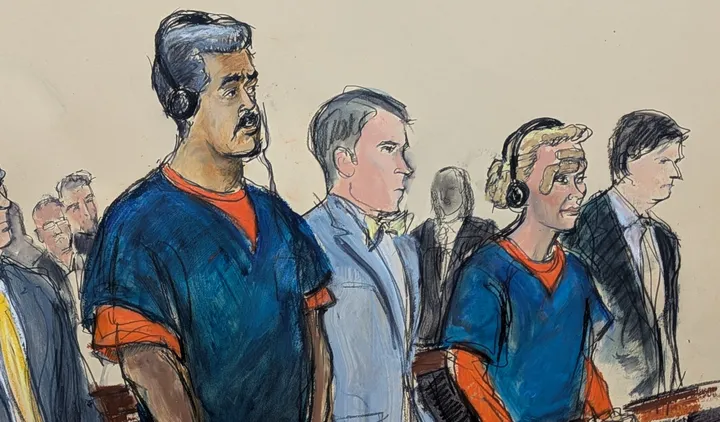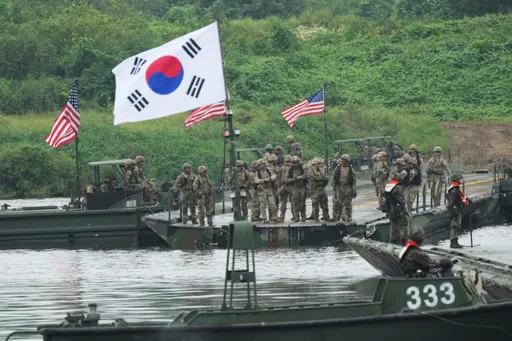African American filmmaker Spike Lee has released his newest film on the streaming platform Netflix. Titled “Da 5 Bloods”, the film tells the story of four black Vietnam veterans travelling back to the country to recover the remains of their squad leader, Stormin’ Norman (Chadwick Boseman), and to look for bars of gold that they left in the jungle in Vietnam that they agreed they would collect later as ‘reparations’.
The film opens with a montage of war-era interviews with figureheads such as Mohammed Ali, who says he has nothing against the Vietnamese and refuses to go to war for the United States, to Angela Davis and Malcolm X.
After the quick montage we see the four friends at the lobby of a hotel in Ho Chi Minh City, happily embracing each other, all excited to go on this adventure mission.
The story soon turns ominous, of course; this being Spike Lee, nothing is as simple as it seems on the surface. Paul (Delroy Lindo, in a tour-de-force acting role that may get him an Oscar nomination), is a man who is always on the brink of snapping, full of rage and guilt, and suffering from post traumatic stress disorder (PTSD).
Otis (Clarke Peters) still has ties to Vietnam, evident when he visits Tien, the former prostitute he was in love with, who promises to set up a monetary exchange via a shady Frenchman, Desroche (Jean Reno) for the gold the men are to bring back from the jungle.
Then there’s Eddie (Norm Lewis), a self-made man who found success in auto dealerships, or so it seems, and Melvin, played by Isiah Whitlock Jr, rounds up the quartet.
The men are surprised by the unexpected arrival of Paul’s son David (Jonathan Majors), who explains that he had been worried about his father’s erratic behaviour and decided to follow him to Vietnam, despite their strained relationship.
What follows is a journey into the heart of darkness. The five men, eschewing the help their tour guide Vinh offers them, decide to wander into the jungle by themselves. Lee’s dark humour shines through in a scene at a bar called “Apocalypse Now” as the men are sent complimentary drinks by Vietnamese men their age, who Vinh informs them are his uncle and his friends, who fought for the North. “The American War” as the Vietnamese refer to it, has apparently split Vietnamese families as well, Lee points out.
The two and a half hour film is filled with action, interspersed with conflict among the characters, and those who they meet along the way. There are the French members of LAMB, Love Against Mines & Bombs, who work to remove mines from the jungle that still claim lives to this day. There are simple Vietnamese hawkers who try to sell their wares on the river, perhaps a little too enthusiastically for Paul’s taste.
Flashbacks appear with Da Bloods, shot in 16mm film especially demanded by Spike Lee, when the middle-aged characters are not played by younger actors but by the main actors, paunchy and wrinkled. Everyone seems to have aged, except their leader Stormin’ Norman, who kept Da Bloods together and in check.
As the viewer roots for the characters, he cannot help but notice that, as Stormin’ Norman says in the 1970s, “War is about money. Money is about war.” And gold bars, initially found during the war in the wreckage of a CIA plane and destined for the Vietnamese, are sure to complicate matters.
Lee employs stock footage to make his point about the pointlessness of war, showing the devastation of the My Lai massacre, and the photographed and widely seen death of Nguyen Van Lem.
The script was originally written by Dany Bilson and Paul De Meo, a writing team of 42 years, and was supposed to be directed by Oliver Stone. However Stone ended up backing out, Spike Lee and his writing partner Kevin Willmott stepped in, and transformed the script into the transcendent one today.
An inspired touch that Lee and Willmott bring to the script was to make Paul a Trump supporter, proudly wearing a red MAGA (Make America Great Again) hat for which he gets made fun of by his fellow ‘Bloods’.
In an interview with the Atlantic, Spike Lee says, “If you watch this film, and watch who wears that hat—it doesn’t stay on Paul’s head.” The hat comes to symbolise evil, as it were.
“Da 5 Bloods” is a film that uses the Vietnam War as a background but explores the deeper issues of inner reckoning each character goes through in the jungle, decades later. In a key scene with Desroche, the French fixer who is supposed to help the vets get the gold converted to cash and deposited in an offshore account in Macau, has a dialogue in French with LAMB’s Hedy Bouvier (“Hedy, like the film star Hedy Lamarr”). When the vets ask her what he said, she shrugs and says “He says that green is more important than black.”
The film is a timely reminder of the complex history of the Vietnam War but makes a point that race relations in the United States since the 1970s haven’t really come along that far. It is recommended viewing for anyone who wishes to have a deeper understanding of both, and to see Lee’s directorial genius at work again.























